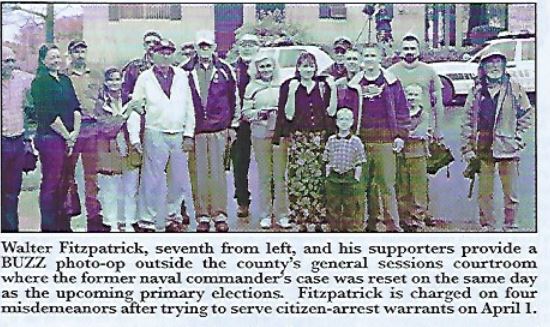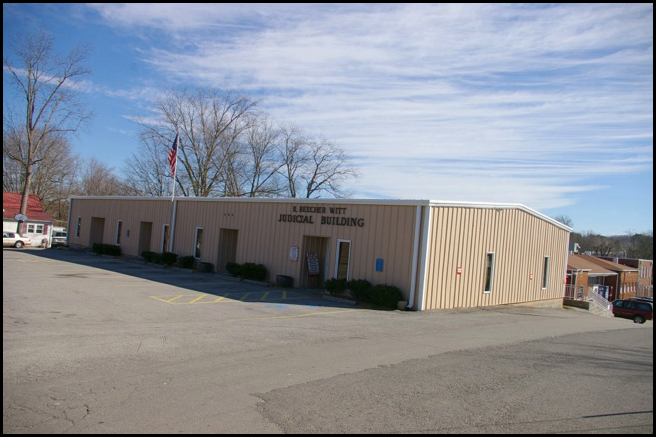ISN’T LYING TO THE FBI A CRIME?
by Sharon Rondeau

(Apr. 15, 2018) — On Wednesday multiple outlets reported that actor T. J. Miller was arrested at LaGuardia Airport on Monday after he was identified as allegedly having called 911 last month to report that a woman had a “bomb in her bag” while riding a commuter train from Washington, DC to New York City.
The story was widely reported in the mainstream and entertainment-themed press. It was not Miller’s first arrest.
Miller was reportedly found to be intoxicated and to have been a passenger on a different train than the one he identified in his call. However, both trains were stopped and searched, according to CNN.
No explosive device was found on either train or anyone’s person. An Amtrak attendant reportedly told police that Miller had engaged in hostile conversation with the woman passenger he claimed was in possession of the bomb. “Officials allege that Miller made up the bomb threat because of a grudge against the woman, causing 926 hours worth of delays and disrupting several law enforcement agencies and bomb squads in Connecticut and New York, according to TMZ,” The Huffington Post reported.
Authorities reportedly questioned Miller about his allegation against the woman and determined that he “continued to convey false information to investigators while the public safety response was ongoing.” Last Tuesday, Miller appeared in federal court in New Haven, CT to face the charge of calling in a false threat and was released on a $100,000 bond.
An April 22, 2010 article by a local journalist in Madisonville, TN reported that the town’s then-mayor, Allan Watson, said that two calls were made to his office on April 19 and 20, 2010, respectively, alleging some type of impending threat.
The threats were said by an FBI agent six days later to have constituted an effort to “take over” the Monroe County courthouse by violence on the morning of April 20 by individuals allegedly belonging to a “loose knit group” which planned to conduct “citizens arrest warrants.”
On that morning, LCDR Walter Francis Fitzpatrick, III (Ret) was scheduled to appear for a judicial assignment hearing at the R. Beecher Witt Courthouse on Tellico Street. The hearing was expected to last between five and ten minutes.
In September 2009, Fitzpatrick discovered that Monroe County criminal court judges hand-pick the grand jury foreman from outside of the jury pool with no vetting process. After launching a number of efforts to focus the attention of the public, including local law enforcement, on the unconstitutional and illegal practice with an eye toward correcting it, Fitzpatrick attempted on April 1, 2010 to arrest then-Monroe County grand jury foreman Gary Pettway for over-serving his term.
Pettway occupied the judicially-created position for more than 28 years.
As a result of the attempted citizen’s arrest, Judge Carroll Lee Ross, now retired and receiving a pension, ordered Fitzpatrick arrested. He was charged with six crimes and jailed for five days, during which he refused food and water. Released on April 6, he was instructed to appear at the Beecher Witt courthouse on the 20th for a decision as to which judge would hear the case against him.
As Fitzpatrick had been quite public about the reasons for the citizen’s arrest, supporters from a number of states sought to attend the April 20 hearing. One of those was Navy veteran Darren Wesley Huff of Georgia; another was a Georgia mother who was homeschooling her children and saw the opportunity for a civics lesson.
Many of those who traveled to Madisonville that day are pictured in a photo taken by Mark Boren of The Monroe County Buzz outside of the Beecher Witt courthouse. The photo is notably absent any sign of Darren Huff, as he never went to the courthouse.

Instead, upon his arrival in Madisonville, Huff and companion Bill Looman patronized Donna’s Old Time Café, where they remained until leaving town early that evening.
One of the self-identified callers to Watson’s office claimed that he had communicated with Watson, who had allegedly claimed that he and unnamed others were “working toward Fitzpatrick.”
According to an April 26, 2010 affidavit sworn by FBI Acting Supervisory Special Agent Mark Van Balen requesting a warrant to arrest Huff, Huff had told a bank teller that he planned to “take over the city” “with eight or nine other militia groups” (p. 5 in link below).
https://www.thepostemail.com/wp-content/uploads/2018/02/Van-Balen-Arrest-Warrant-Huff-from-WBIR.pdf
On the evening of April 19, 2010, as Van Balen related in the affidavit, Huff was visited at his home by two FBI agents who questioned him about his plans for the following day. No evidence has been cited between then and now that the agents believed that Huff posed a threat to the town of Madisonville.
Almost three years after allegedly communicating with Watson, Bryan posted in “The Fogbow” forum that ““The cops were GRATEFUL” that his group allegedly sought to alert local authorities to a “plot” by which Huff and others planned to “take over the courthouse by force.”
It is unclear how the group learned of the alleged “plot” and whether or not they communicated directly with the FBI.
Fitzpatrick and other eyewitnesses, including Huff, have described an enormous array of local, county, state and federal authorities present in Madisonville on April 20, 2010. Fitzpatrick estimated that more than 150 law enforcers descended upon the small Eastern Tennessee town, to include snipers positioned on the main courthouse roof, helicopters overhead, bomb-sniffing dogs, and, as was reported by Boren, who was on the ground that day, “beefed up security” at the main courthouse and a school on “lockdown.”
Boren described Fitzpatrick’s “supporters” as consisting of a “handful” who left Madisonville “shortly before noon.”
As Fitzpatrick has pointed out, law enforcers closely surveilled Huff as he left his home in Georgia that morning headed toward Madisonville. Approximately 15 miles outside of town, Huff was stopped by members of the Tennessee Highway Patrol, who claimed that he committed three motor vehicle infractions. However, they allowed Huff to proceed after observing him lock his legally-owned firearms in the toolbox attached to the back of his pickup truck.
Van Balen’s affidavit tells a different story which was related to a federal magistrate in order to obtain an arrest warrant.
The agency’s numerous misstatements of simple facts included that Huff was from both Dallas, GA and Dalton, GA, including within Van Balen’s affidavit; that the citizen’s arrest of the grand jury foreman took place April 2, 2010 when the date was April 1, 2010; that Huff promised to lock his firearms “in his toolbox later when he approached the Courthouse” when state police observed him placing them there during the traffic stop; and that “your affiant knows that on April 20, 2010, there were over a dozen members of this loose knit group who had assembled with the stated intent to effect the citizens arrest warrants that had been issued by FITZPATRICK and/or take over the courthouse if it was deemed necessary.”
There is no photographic or eyewitness evidence supportive of Van Balen’s claims, nor has an explanation been offered for the errors in his affidavit.
The FBI pursued an arrest based on a false narrative, then boasted about it.
Further, Fitzpatrick has noted that the Monroe County Sheriff’s office, which includes Madisonville, is located just steps away from the R. Beecher Witt courthouse and could easily have intervened had an incident occurred.
In February, MCSO Deputy Sheriff J. Moses, recollecting the large assemblage of law enforcers that day, admitted to Fitzpatrick that The extraordinary summoning of more than 150 law enforcers into Madisonville amounted to nothing more than an exercise that he deemed had been “good for training.”
Although local, state, and federal law enforcement may have “believed” that a violent incident was imminent on April 20, 2010, their belief was misplaced. Despite that, Darren Huff was arrested on April 30, 2010, charged with two federal firearms violations, and sent to prison for three and one-half years.
In a press release following Huff’s conviction, the FBI lauded the jury’s decision and the judge’s sentencing of a “militia extremist.” The “premier law enforcement agency” continued to mislead the public in a radio broadcast on May 22, 2012 when it falsely claimed that it prevented a number of “militia extremists” from committing mayhem in the streets of Madisonville on April 20, 2010.
As is well-known, “lying to the FBI” is a “federal crime” for which Martha Stewart and Scooter Libby were convicted. Who lied to the FBI in April 2010, and why were those individuals not prosecuted?
What are the consequences, if any, when the FBI lies?


If Huff believes the FBI presented false evidence, why did Huff never present evidence of the FBI’s falsity to the court?